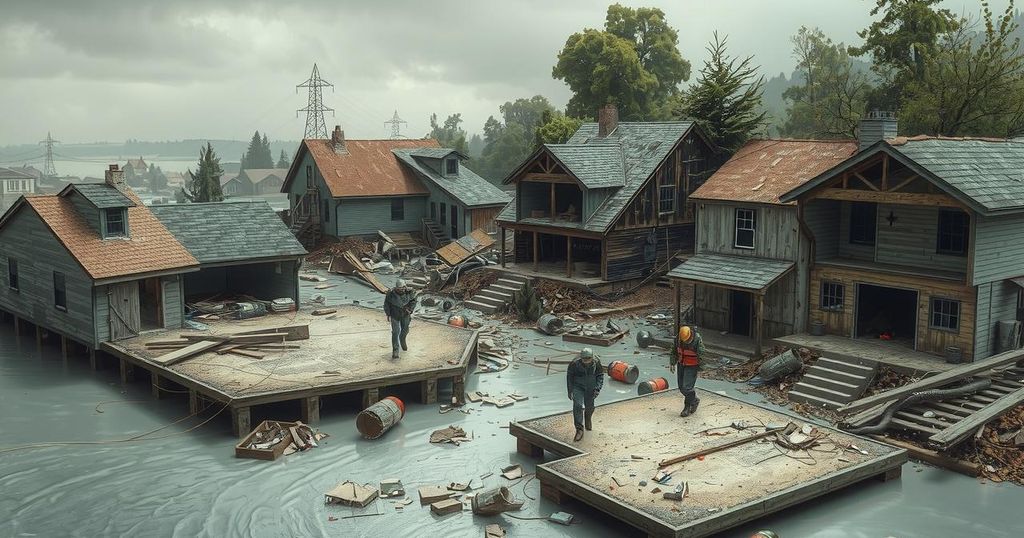Rescuers Fan Out After Nigeria Flooding Kills More Than 150 People

A tragic flash flood in Mokwa, Nigeria, has resulted in the deaths of more than 150 people and wrecked over 250 buildings. Rescue teams are searching several kilometers beyond the town’s center, where many bodies were found. Authorities emphasize the need for stronger infrastructure and emergency preparedness in the face of climate-related disasters.
Search and rescue efforts unfolded Saturday in Nigeria following devastating flash floods in Mokwa, which resulted in more than 150 fatalities. The Red Cross reported that rescue teams extended their search for victims several kilometers from the flood’s epicenter. This surge in the death toll reflects the scale of the disaster, with many bodies discovered almost 10 kilometers away from the town’s center.
The catastrophic flooding has wreaked havoc, demolishing over 250 buildings and destroying two vital bridges. Ibrahim Audu Husseini, a spokesperson for the Niger State Emergency Management Agency, provided these grim statistics to AFP. This tragic event has highlighted the urgent need for improved infrastructure and emergency preparedness in such vulnerable areas, where rapid weather changes can lead to severe consequences.
As teams continue to sift through the wreckage, the toll may unfortunately rise. The community faces immense challenges ahead—not just in mourning and recovery, but also in planning for future disasters amid the changing climate. The government is urged to take these lessons seriously, investing in better drainage systems and public awareness initiatives to help avert further tragedies.
Survivors are attempting to locate missing family members and assess the complete damage, while aid organizations gear up to provide relief. In addition to physical damage, the emotional toll and trauma experienced by those affected are profound. The Red Cross and other humanitarian groups are mobilizing to support survivors wherever they can.
Flooding in Nigeria isn’t uncommon, but the sheer scale of this incident seems to be part of a growing pattern. With climate-related disasters becoming more frequent, the region must prioritize adaptation and resilience strategies. Stakeholders, both local and national, face an uphill battle to mitigate future risks and enhance community safety measures.
As the focus remains on recovery, local authorities continue appealing for assistance to aid those whose lives were shattered in an instant by nature’s fury. The immediate concerns include providing food, shelter, and medical aid, but long-term solutions must also be on the table to prevent a repeat of such devastation. The aftermath of this disaster serves as a sobering reminder of the power of natural events and the desperate need for coordinated responses.
The recent flash floods in Nigeria’s Mokwa have claimed over 150 lives and caused significant destruction, including the loss of over 250 buildings and critical infrastructure. As search and rescue operations continue, the disaster highlights the urgent need for improved emergency preparedness and infrastructure enhancement to cope with climate-related threats. Local and national authorities must work together with humanitarian organizations to provide immediate relief and develop long-term strategies to mitigate future risks. This tragedy underscores the importance of resilience in vulnerable regions.
Original Source: www.djournal.com






